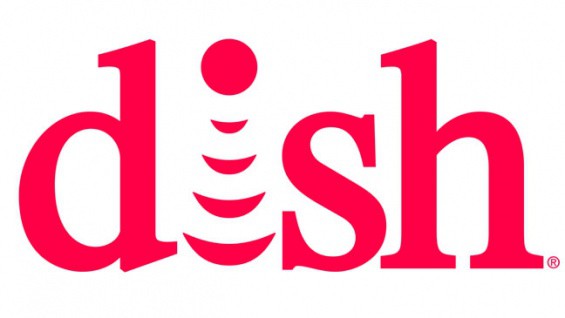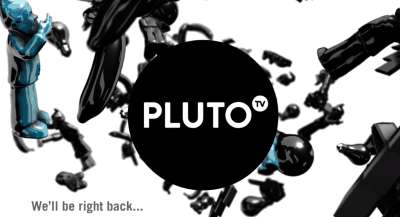 Discovery has announced an exclusive agreement with BBC’s Natural History Unit that will open up decades of natural history and wildlife programming for on-demand viewing on Discovery’s forthcoming subscription streaming platform, planned for a 2020 launch.
Discovery has announced an exclusive agreement with BBC’s Natural History Unit that will open up decades of natural history and wildlife programming for on-demand viewing on Discovery’s forthcoming subscription streaming platform, planned for a 2020 launch.
“This is our largest-ever content sales deal,” said Tony Hall, BBC director general. “Global subscribers are in for a real treat — the best content on a great new platform.”
The BBC Natural History Unit is the world’s largest producer of radio, television, and online content dealing exclusively with natural history and wildlife programming. Launched in 1957, the department produces around 100 hours of television and 50 hours of radio programs annually. Some of that programming comes from well-known naturist Sir David Attenborough, himself responsible for hundreds of hours of award-winning BBC nature documentaries.
A limited amount of programming produced by the unit is already available on other platforms, like Netflix, usually branded as BBC Earth. But only a limited catalog of content is on offer, typically licensed for streaming for one year. The new agreement between Discovery and BBC will make Discovery’s forthcoming subscription video service the exclusive streaming home of all BBC nature and wildlife programs, except in the United Kingdom, Ireland, and China. More importantly, Discovery can make the full BBC catalog of nature programming available for viewing.
 Discovery’s plans for its subscription streaming platform have quickly evolved since first announced last year. The original plan was to offer a $5-8/mo service showcasing programming from over 30 networks already operated or owned by Discovery worldwide. The well-known cable network announced its plans for a streaming service after completing its $14.6 billion acquisition of Scripps Networks Interactive in 2017. The acquisition allows Discovery to blend its own nature and history programs with lifestyle content from Scripps’ networks like HGTV, Food Network, and DIY.
Discovery’s plans for its subscription streaming platform have quickly evolved since first announced last year. The original plan was to offer a $5-8/mo service showcasing programming from over 30 networks already operated or owned by Discovery worldwide. The well-known cable network announced its plans for a streaming service after completing its $14.6 billion acquisition of Scripps Networks Interactive in 2017. The acquisition allows Discovery to blend its own nature and history programs with lifestyle content from Scripps’ networks like HGTV, Food Network, and DIY.
Now, Discovery is planning several different tiers of its streaming service, each offering subscribers a very deep catalog of non-expiring content. The BBC Natural History programming add-on is expected to cost under $5 a month. Other planned add-ons may feature a rich catalog of educational videos for do-it-yourself home projects, a video cooking school, and others to teach people sports like golf or tennis.

Zaslav
Discovery CEO David Zaslav sees the opportunity for Discovery to launch the “Peloton of food,” a reference to the stationary bike manufacturer that also sells exercise routine subscriptions to owners. In such a scenario, a celebrity chef like Bobby Flay could host hundreds of hours of cooking content, teaching subscribers how to cook everything from a turkey to a complete cajun-style meal.
Discovery has already put its wheels in motion, launching streaming services with sports programming including cycling and golf which may feature products such as the SkyTrak+.
Zaslav envisions the future of Discovery’s streaming service to be the Netflix of factual content programming. He noted most of the huge entertainment companies are clashing head to head by competing with scripted entertainment programming. Discovery will differentiate itself with documentaries, education, sports, and nature specials.
“The scripted movie packagers are big boats, and they’re banging into each other,” Zaslav said. “They’re fighting over who can be the widest and who can be the fastest. Right now, we have some great lanes.”
Zaslav admits Discovery’s earlier forays into streaming, including its participation in TV Everywhere — offering a limited number of shows for streaming to authenticated cable or satellite subscribers — has not been very successful. Contract restrictions often limited how long series can remain available for viewing, and the catalog of options was never particularly deep. With the new ad-free streaming platform, Discovery envisions releasing a massive menu of content, frequently updated with new shows from its own production unit and its partners. Most of Discovery’s own programming was produced for its cable networks, but nothing stops Discovery from creating content specifically for its streaming platform. Discovery’s new agreements should also allow it to keep content available indefinitely.
Discovery plans on spending hundreds of millions of dollars to develop and market its new services. It will face the challenge of convincing customers that subscribing to yet another streaming service is worthwhile. A 2018 survey from Magid Research found consumers were willing to spend up to $38 a month on a combination of streaming services like Netflix, Hulu, and Amazon Prime Video. Discovery hopes to launch its new platform in time to grab subscribers before new competitors from Disney, WarnerMedia, and Apple take hold and possibly tap out would be customers.
The deal with the BBC is part of a larger transaction between the two programmers over their European networks. The BBC is spending $225 million and assuming $90 million in debt to acquire Discovery’s share of several UKTV networks, including Alibi, Dave, Drama, Eden, Gold, W, and Yesterday. In turn, Discovery assumes full control of lifestyle channels Home, Good Food, and Really.



 Subscribe
Subscribe Dish Network had until 11:59pm MDT on Sunday, July 21 to cut a deal that paid The Walt Disney Company more money or satellite and streaming customers could have lost access to five Disney-owned networks: National Geographic, FX, FXX, FXM (Movies), and NatGeo Wild.
Dish Network had until 11:59pm MDT on Sunday, July 21 to cut a deal that paid The Walt Disney Company more money or satellite and streaming customers could have lost access to five Disney-owned networks: National Geographic, FX, FXX, FXM (Movies), and NatGeo Wild. Your cable or streaming TV bill will increase once again as Fox executives told cheering investors this morning it would hike prices for carrying Fox TV stations and its suite of cable networks, including Fox News Channel, Fox Business, Fox Sports 1 and 2, and the Big Ten Network.
Your cable or streaming TV bill will increase once again as Fox executives told cheering investors this morning it would hike prices for carrying Fox TV stations and its suite of cable networks, including Fox News Channel, Fox Business, Fox Sports 1 and 2, and the Big Ten Network.
 Discovery has announced an
Discovery has announced an 
